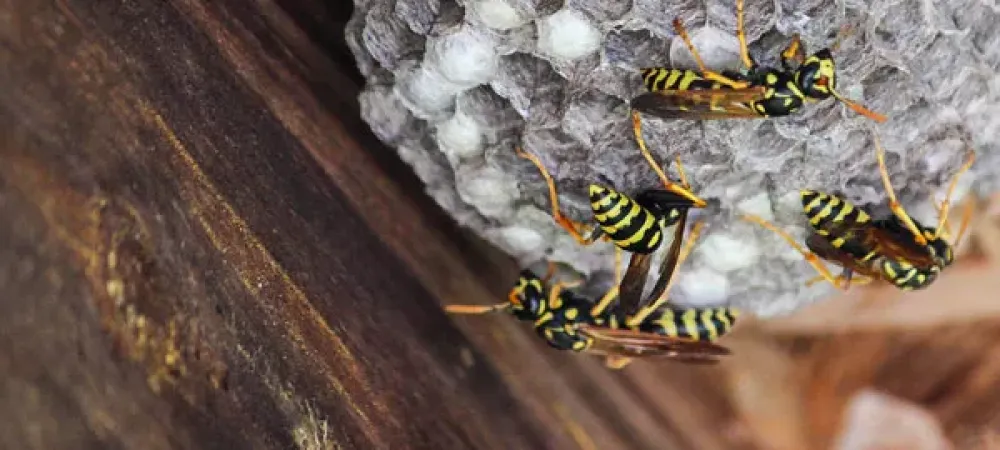How to Keep Hornets Away

Hornets can pose a nuisance and even a threat, especially during warmer months. By understanding their behavior and employing effective strategies, you can maintain a hornet-free environment. From simple preventive measures to natural repellents, we'll cover a range of techniques suitable for various situations.
DIY Methods to Keep Hornets Away
There are a few DIY methods to repel hornets that can offer quick and affordable solutions. From crafting homemade traps to using household items strategically, there are numerous ways to deter these stinging insects from nesting around your home or garden. Here are six of our recommendations:
- Remove Food Sources: Keep outdoor eating areas clean and free of food debris, including fallen fruits, sugary spills, and open garbage cans that may attract hornets.
- Hang Fake Nests: Install artificial hornet nests in key areas around your property to deter hornets from nesting there, as they are territorial insects, and avoid areas with existing nests.
- Create DIY Traps: Make homemade traps using a mixture of water, sugar, and vinegar or by repurposing plastic bottles with sweet bait to attract and trap hornets.
- Keep Outdoor Lights Off: Turn off outdoor lights at night, as they can attract hornets and other insects.
- Maintain Landscaping: Trim bushes, shrubs, and trees regularly to remove potential nesting sites and eliminate hiding spots for hornets.
- Keep Water Sources Covered: Cover swimming pools, bird baths, and other water sources to prevent hornets from accessing them for drinking or nesting purposes.
What Scent Keeps Hornets Away?
Certain scents have been found to naturally repel hornets, helping to deter them from your surroundings. Peppermint, with its strong and refreshing aroma, is known to discourage hornets from nesting or foraging in areas where it's prevalent. Similarly, essential oils like clove and lemongrass emit fragrances that hornets find unpleasant, making them effective natural repellents when applied strategically. These scents can be used in various forms, such as cotton balls soaked in essential oils or diffusers placed around outdoor spaces.
What Time of Day Are Hornets Most Active?
Hornets are generally most active during the daytime, particularly in the early morning and late afternoon. If you want to avoid the hornets in your yard, try staying inside during this time.
Are Hornets as Aggressive as Wasps?
Hornets are generally considered to be less aggressive than some species of wasps, although their behavior can vary depending on factors such as the species, the size of the colony, and environmental conditions. Hornets are also known to give warning signs, such as buzzing loudly or flying in a defensive manner, before resorting to stinging. However, it's essential to exercise caution around hornets, especially near their nests, as they can still deliver painful stings.
Professional Hornet Removal Services
While there are plenty of steps you can take on your own to prevent hornets, the most effective way to protect your property from these stinging insects is through professional services. At A-Action Pest Control, safeguarding your property from hornets is our top priority. With our precision treatment, we offer a comprehensive solution to keep your family and pets safe from the threat of stinging insects. Trust A-Action to deliver reliable and proactive hornet control, giving you peace of mind all season long.

